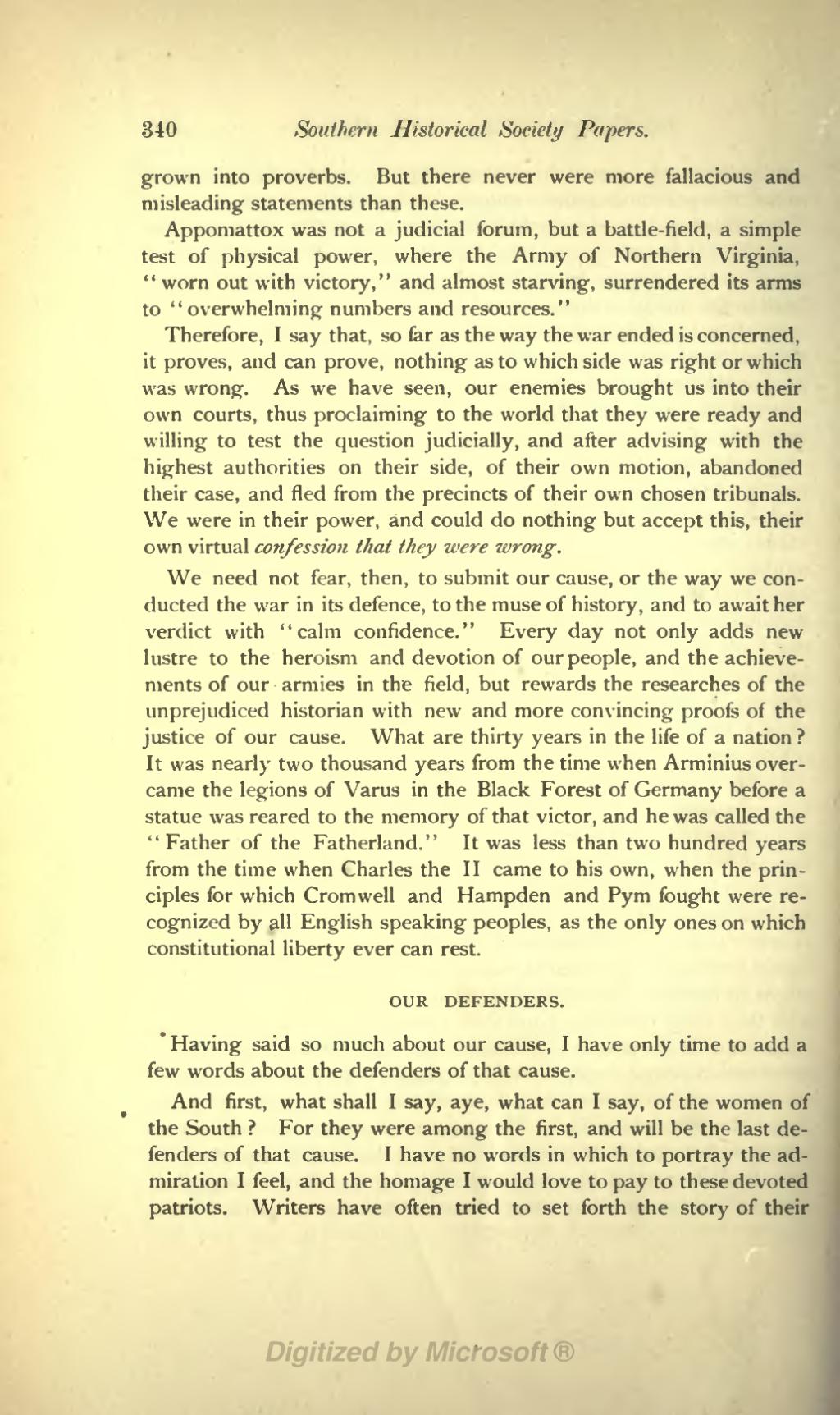340 Southern Historical Society Papers.
grown into proverbs. But there never were more fallacious and misleading statements than these.
Appomattox was not a judicial forum, but a battle-field, a simple test of physical power, where the Army of Northern Virginia, " worn out with victory," and almost starving, surrendered its arms to "overwhelming numbers and resources."
Therefore, I say that, so far as the way the war ended is concerned, it proves, and can prove, nothing as to which side was right or which was wrong. As we have seen, our enemies brought us into their own courts, thus proclaiming to the world that they were ready and willing to test the question judicially, and after advising with the highest authorities on their side, of their own motion, abandoned their case, and fled from the precincts of their own chosen tribunals. We were in their power, and could do nothing but accept this, their own virtual confession that they were wrong.
We need not fear, then, to submit our cause, or the way we con- ducted the war in its defence, to the muse of history, and to await her verdict with "calm confidence." Every day not only adds new lustre to the heroism and devotion of our people, and the achieve- ments of our armies in the field, but rewards the researches of the unprejudiced historian with new and more convincing proofs of the justice of our cause. What are thirty years in the life of a nation ? It was nearly two thousand years from the time when Arminius over- came the legions of Varus in the Black Forest of Germany before a statue was reared to the memory of that victor, and he was called the "Father of the Fatherland." It was less than two hundred years from the time when Charles the II came to his own, when the prin- ciples for which Cromwell and Hampden and Pym fought were re- cognized by all English speaking peoples, as the only ones on which constitutional liberty ever can rest.
OUR DEFENDERS.
- Having said so much about our cause, I have only time to add a
few words about the defenders of that cause.
And first, what shall I say, aye, what can I say, of the women of the South ? For they were among the first, and will be the last de- fenders of that cause. I have no words in which to portray the ad- miration I feel, and the homage I would love to pay to these devoted patriots. Writers have often tried to set forth the story of their
